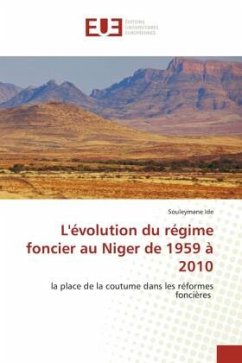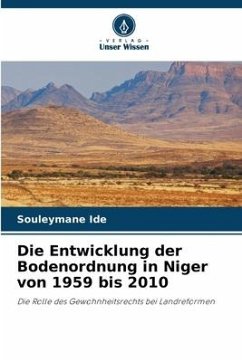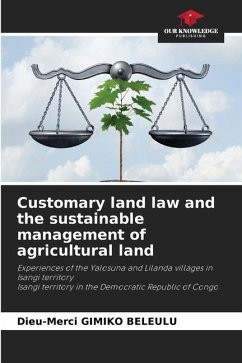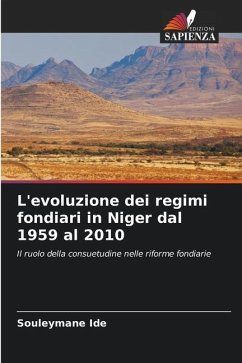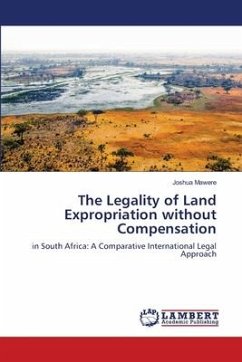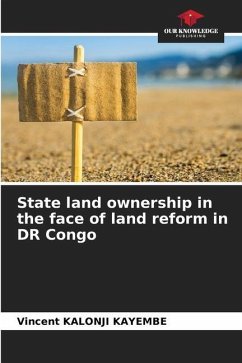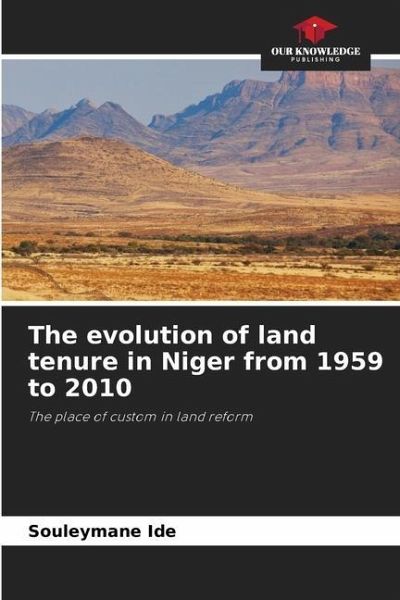
The evolution of land tenure in Niger from 1959 to 2010
The place of custom in land reform
Versandkostenfrei!
Versandfertig in 6-10 Tagen
64,99 €
inkl. MwSt.

PAYBACK Punkte
32 °P sammeln!
In Niger, as everywhere else in Africa, land tenure is inextricably linked to social, political, economic and ontological relations. Land tenure is all the more important in Niger because the Nigerien populations, living essentially from agriculture and livestock, are naturally subdivided into nomads and sedentaries. The Nigerien authorities, following the example of the colonial power, first embarked on a logic of marginalization of customary tenure. This marginalization was manifested in the limitation of the land prerogatives of the traditional chieftainship, followed by a strengthening of ...
In Niger, as everywhere else in Africa, land tenure is inextricably linked to social, political, economic and ontological relations. Land tenure is all the more important in Niger because the Nigerien populations, living essentially from agriculture and livestock, are naturally subdivided into nomads and sedentaries. The Nigerien authorities, following the example of the colonial power, first embarked on a logic of marginalization of customary tenure. This marginalization was manifested in the limitation of the land prerogatives of the traditional chieftainship, followed by a strengthening of the powers of the state (1959-1993). However, the attachment of Niger's peasants to ancestral practices forced the legislator to reaffirm customary land rights from 1993 onwards and to expressly recognize traditional chieftaincy as the repository of traditional values in the constitution of 25 November 2010. Thus, this book analyzes the place of customary tenure in the various land reforms undertaken in Niger.



